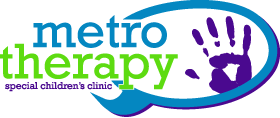How School and Clinic-Based Pediatric Therapy Differ
The world of pediatric therapy can be confusing for many parents. Not only are there different types of pediatric therapy like physical, occupational, feeding, or speech and language, but there are different ways to obtain therapy, as well. It can be difficult for parents to select the best therapy for their child’s needs if they don’t understand the differences between each option. School-based and clinic-based pediatric therapy are two options that help children gain the developmental skills they need for success. However, they are not interchangeable as each one provides children with different levels of care. That’s why it’s important for you to know how school and clinic-based pediatric therapy programs differ, so you can make an informed decision on which approach is best for your child’s future. And how both pediatric outpatient therapy and school based therapy can support one another.
What Is School-Based Pediatric Therapy?
School-based pediatric therapy is an intervention for children who are struggling to succeed in school due to developmental delays or disabilities. A school-based pediatric therapist will either work with a child in their classroom, pull the child out of class for therapy sessions, or consult with the child’s teacher on how to best accommodate the child’s needs. A school-based therapist’s job is to help the child be able to access education.
What Does School-Based Pediatric Therapy Address?
Because this type of pediatric therapy is designed specifically to help children participate in school, it only addresses delays that directly impact the child’s education. This may include skills such as:
Improving speech and language
Using mobility equipment like wheelchairs
Organizing their desk for ease of use
Improving handwriting
It’s important to note that most children do not receive significant one-on-one time from their school-based pediatric therapist. Often, children receiving pediatric therapy in school receive a maximum of 15-30 minutes per week of speech therapy and 1 hour per month of occupational therapy. And in many cases, the school-based therapist might not have direct time working with the child at all, but rather observes the child and gives their teacher recommendations on how to accommodate their needs.
Benefits of School-Based Pediatric Therapy
School-based therapy is a good supplement to a child’s education because it directly addresses delays or other factors that can inhibit your child’s academic progress. The main difference between school-based and clinic-based therapy is that the former only deals with delays, disabilities, and other conditions that impact your child’s ability to receive an education. This means that if your child is struggling at home with self-care, emotional regulation, feeding, or other areas that are not related to their education, a school-based pediatric therapist will not work with your child to handle these situations.
What Is Clinic-Based Pediatric Therapy?
Clinic-based or outpatient pediatric therapy is designed to address any of a child’s physical, occupational, feeding, speech, or language struggles. Clinic-based pediatric therapists work with both the child and their parents or guardians to help the child gain the skills they need for success in school, at home, in relationships, and in their community.
What Does Clinic-Based Pediatric Therapy Address?
At Metro Therapy, we provide pediatric physical, occupational, feeding, speech, and language therapy to children. This means we can assist children with any of their developmental skills in:
Speech and language
Cognitive ability
Motor function
Sensory processing
Self-care
Feeding
Emotional regulation
We provide 1-hour physical therapy sessions twice per week, occupational therapy sessions twice per week and 30-minute speech and language therapy sessions twice per week. Our therapists work one-on-one with the children in our care to help them develop the skills they need to be the very best they can be.
Benefits of Clinic-Based Pediatric Therapy
In addition to helping children gain their developmental skills, improve their confidence, and become more independent, outpatient pediatric therapy provides support and resources for parents. At Metro Therapy, we provide home programs to parents and caregivers. These programs give parents simple activities and suggestions that they can use at home to help their child continue to practice their new skills between therapy sessions so they progress quicker across all settings.
Another benefit of clinic-based therapy is that it does not rely on the school schedule. Over summer vacation, spring and winter breaks, snow days, and other various holidays, your child can miss out on a lot of their school-based therapy. When they attend a pediatric therapy clinic, however, you don’t have to worry about your child forgetting their new skills because their therapy schedule stays the same regardless of the time of year.
We also work directly with daycare providers, teachers, and pediatricians to ensure each child has a full support system. Our aim is to ensure the adults in each child’s life are on the same page with regard to the child’s pediatric therapy so they can achieve their developmental goals.
Schedule Your Free Screening Today
School-based pediatric therapy has some benefits to ensure children can receive an education the same as their peers. However, most children will make faster progress with routine, one-on-one pediatric therapy sessions at an outpatient clinic. If you are concerned about your child’s progress in their school-based program, or if you are interested in clinic-based therapy for your child, call us at (763) 450-9400 to schedule a free pediatric therapy screening.

